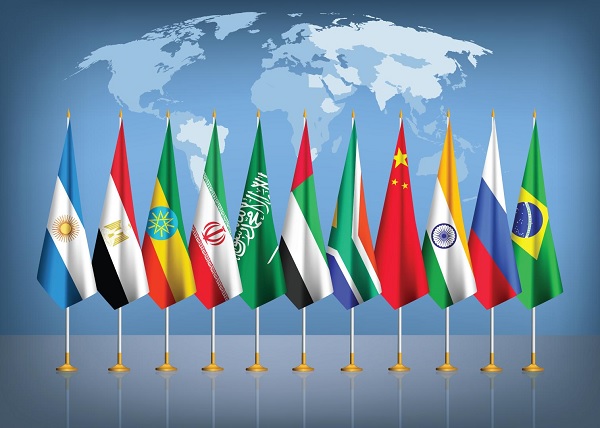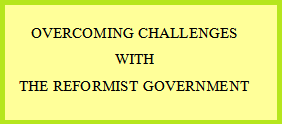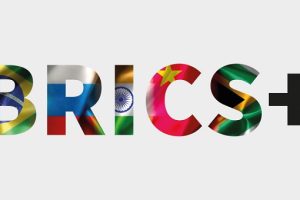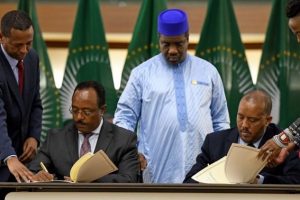
Like the good old days, Ethiopia has kept its momentum in advancing its diplomatic path in the international arena. As the nation is among the founding members of most international institutions, it is still performing the same and continues to be accepted in newly established institutions like BRICS.
The world has been ruled and shaped by a few entities in the past many decades. In good truth, the world is going in the ways that are designed by the globalization as every part is intermingled to each other. However, there are some objections regarding the global system including the financial and power division and holding them in hegemony. It is true that the world believes and works in a way that only the fittest survives. Those who cannot hold the pressure of the competition left behind.
The power and financial organizations of the globe are dictated by the few powerhouses of the world, and these nations have been pressing their agenda and interest onto other nations, especially on poor and developing nations, through their financial and veto power. Such moves definitely become a bottleneck for developing nations to exercise the power of being a sovereign stated and their own agenda in the world arena.
It is clear that finance plays a pivotal role in every segment of the globe as it is used as a fuel to achieve any interest. Those who built their finance on a better foundation flex their muscles on those who have less potential and cannot find a way to generate the expected income. Indeed, the finance made the difference, and its consequence is shown in creating economic supremacy and isolation among nations. On the other hand, those who are financially weak and left out of the system have been looking for other alternatives that can have a stage to entertain every interest without creating levels in the multipolar world.
Those financial and power houses like International Monetary Fund (IMF), World Bank Group, and the United Nations Security Council (UNSC) are very much open to political and economic pressure from those permanent members. These global blocs, from their inception, seem to deliberately neglect the participation of countries, even a continent like Africa.
The case of inclusion and equal participation pave different ways to look for new opportunities. Many believe that the world will no longer go further with such rotten system that gives the power to the few and leave the many behind. To this point, nations are seeking different yet inclusive blocs that can entertain multilateralism and incorporate all without equal opportunities. Having a number of institutions on different sectors create a chance to choose which institution is better and has the expected opportunities.
In recent years, the emergence of different blocs like the BRICS opens doors for nations to be a part of it and realize the concept of multi-polar and multi-lateral world. The BRICS, which is an acronym, was formally established by those five founding members namely Brazil, Russia, India, China, and South Africa back in 2009. Those members together cover account for more than 40% of the world population and a quarter of the global economy.
One of the major objectives of the bloc is to bring equality in the world that is mostly dominated by the West. Again, the bloc aims to promote the essence of a multipolar global order that can discover a path to a platform that can shape economic and political imbalance. It also plans to share the burdens of those high table institutions like the IMF and World Bank by incorporating the unincorporated. Besides, the bloc is committed to promote multilateralism, reforming the global governance, financial system, and increasing the representation and voice of emerging markets and developing countries.
Performing its goals in the past few years, the bloc wanted to act upon its vision to bring in new members. Back in 2023, the bloc held its 15th annual gathering, the BRICS 2023 Summit in Johannesburg, South Africa. The summit was held under the theme “BRICS and Africa: Partnership for Mutually Accelerated Growth, Sustainable Development, and Inclusive Multilateralism.”
During the summit, leaders of the bloc have discussed on the ways to expand the bloc so that it would incorporate many members as more than 40 countries showed their interest to be the a member of the bloc. On top of that, around 20 nations have formally applied to become new BRICS members, including Saudi Arabia, Iran, the United Arab Emirates, Argentina, Indonesia, Egypt and Ethiopia.
Again, Brazilian President Luiz Inacio Lula da Silva, during the summit said, “At this meeting, we could possibly decide by consensus which new countries will be able to join the BRICS. I consider it extremely important to allow other countries that meet the BRICS requirements to join the group.”
The summit had, then, announced that the bloc would welcome six new members: Iran, Argentina, Egypt, Ethiopia, Saudi Arabia and the United Arab Emirates (UAE) from first of January 2024. After the entry, Prime Minister Abiy Ahmed (PhD), on his social media account shared his opinion saying, “An important moment for Ethiopia, the BRICS leaders accepted our entry into the group today. Ethiopia stands ready to cooperate with all for an inclusive and prosperous world order. Congratulations to all Ethiopians!”
From the start of its membership, Ethiopia praises its entry and works to get the best advantage from the bloc and securing its national interest. Recently, Ethiopian delegation has participated at BRICS Ministers of Foreign Affairs and International Relations meeting which was taken place in Nizhny Novgorod, Russian Federation from 10-11 June 2024.
During the meeting, Taye Atske Selassie, Minister of Foreign Affairs, led the Ethiopian delegation and expressed the nation’s stand in relation to the membership and other issues. The minister stated that Ethiopia greatly values its BRICS membership.
According to the Ministry of Foreign Affairs, the minister highlighted the various measures Ethiopia has taken to enhance its active role in the BRICS family in line with its national development priorities.
Taye also stated that as the most pressing transnational issues cannot be addressed by any single institutions alone, renewed and genuine global partnership is not a choice but a necessity.
The importance of promoting collective solutions rooted in effective multilateralism and putting development at the center of the global discourse were given emphasis, he said.
The minister further stressed the urgent need to retool multilateral institutions, and an increased development financing and debt relief, in order to address and accommodate the legitimate interests of developing countries.
He also reaffirmed Ethiopia’s resolve to the collective pursuit of peace and progress, inclusive and sustainable development, as well as effective multilateralism.
BY DANIEL ALEMAYEHU
THE ETHIOPIAN HERALD SATURDAY 15 JUNE 2024



